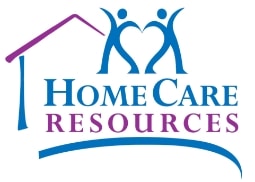
Anxiety is something that millions of seniors struggle with. Many seniors though, will never get treatment or help managing their anxiety because they think these symptoms or excessive worry is just part of getting older.
There is a stigma among seniors that getting help for mental health is not something that people do. But there’s no reason why seniors should live with crippling anxiety. They can get relief from anxiety with treatment like medications and therapy.
In order to get diagnosed with anxiety and get help, seniors first need to recognize that what they’re experiencing is a mental health condition and not just occasional bouts of worrying. Here is some insight on anxiety symptoms to look out for.
Excessive Worry
Seniors with anxiety may experience persistent and excessive worry about various aspects of their lives, such as health, finances, family, or safety. This worry can be difficult to control and may interfere with daily activities. Seniors aging in place may experience excessive worry when they are alone frequently. Elder care can help seniors alleviate loneliness by providing daily visits.
Restlessness
Restlessness is a common symptom of anxiety. Seniors may have trouble sitting still or relaxing, constantly feeling the need to move or engage in activities to distract themselves from their anxious thoughts. Channeling that restlessness into activity through joining an exercise class or volunteering can help.
Irritability
Anxiety can lead to increased irritability and mood swings in seniors. They may become easily agitated or have a lower tolerance for stressors or inconveniences.
Physical Symptoms
Anxiety often manifests with physical symptoms, including muscle tension, trembling or shaking, sweating, nausea, and a racing heart (palpitations). Seniors may experience these physical sensations without an obvious cause. Panic attacks and other symptoms may be so intense that seniors fear they are experiencing a heart attack.
Sleep Disturbances
Anxiety can disrupt sleep patterns, leading to difficulty falling asleep, frequent awakenings during the night, or early morning awakenings. Seniors may also have restless or anxious dreams.
Fatigue
The constant state of anxiety can be exhausting. Seniors with anxiety may complain of feeling tired or fatigued, even when they haven’t engaged in physically demanding activities.
Difficulty Concentrating
Anxiety can make it challenging to concentrate or focus on tasks. Seniors may have trouble making decisions or completing simple activities that require attention.
Muscle Aches and Pains
Chronic muscle tension caused by anxiety can lead to muscle aches and pains, especially in the neck, shoulders, and back. Regularly activity and movement can help seniors alleviate the muscle aches caused by clenching their muscles because of anxiety.
Gastrointestinal Symptoms
Seniors with anxiety may experience digestive issues such as stomachaches, diarrhea, or constipation. These symptoms can be exacerbated during periods of high anxiety.
Cognitive Impairment
Severe anxiety can impact cognitive function and memory, leading to forgetfulness and difficulty recalling information. They may also withdraw from social activities and interactions due to fear, worry, or discomfort in social situations. This can lead to isolation and loneliness.
Avoidance Behavior
To cope with their anxiety, some seniors may develop avoidance behaviors, avoiding situations or places that trigger their anxiety. For example, they may avoid traveling or going to crowded places. Elder care can help by accompanying seniors to the store, to the doctor, or out in public.
Excessive Self-Criticism
Seniors with anxiety often engage in negative self-talk, doubting their abilities or self-worth. They may be overly critical of themselves.
Health Anxiety
Some seniors with anxiety develop health anxiety, constantly worrying about their health and experiencing excessive fear about minor symptoms or medical conditions.
Phobias
Seniors with anxiety may have specific phobias, such as fear of flying, heights, or certain animals. These phobias can lead to avoidance of situations associated with their fears.
If you or an aging loved one are considering Elder Care in Phoenix, AZ please contact the caring staff at Home Care Resources today. Call (602) 443-4700
Home Care Resources is a top provider of home care services in Phoenix, Tempe, Scottsdale, Glendale, Paradise Valley, Peoria, Sun City, Sun City West, Surprise, Goodyear, Cave Creek, Care Free, Fountain Hills, and surrounding areas.
Source 1 / Source 2 / Source 3
- Six Warning Signs of Diabetes to Watch for in Seniors with Dementia - May 19, 2025
- Understanding Chronic Conditions in Seniors: The Importance of Support - May 9, 2025
- Helping Your Elderly Loved One Maintain Healthy Vision - April 24, 2025




